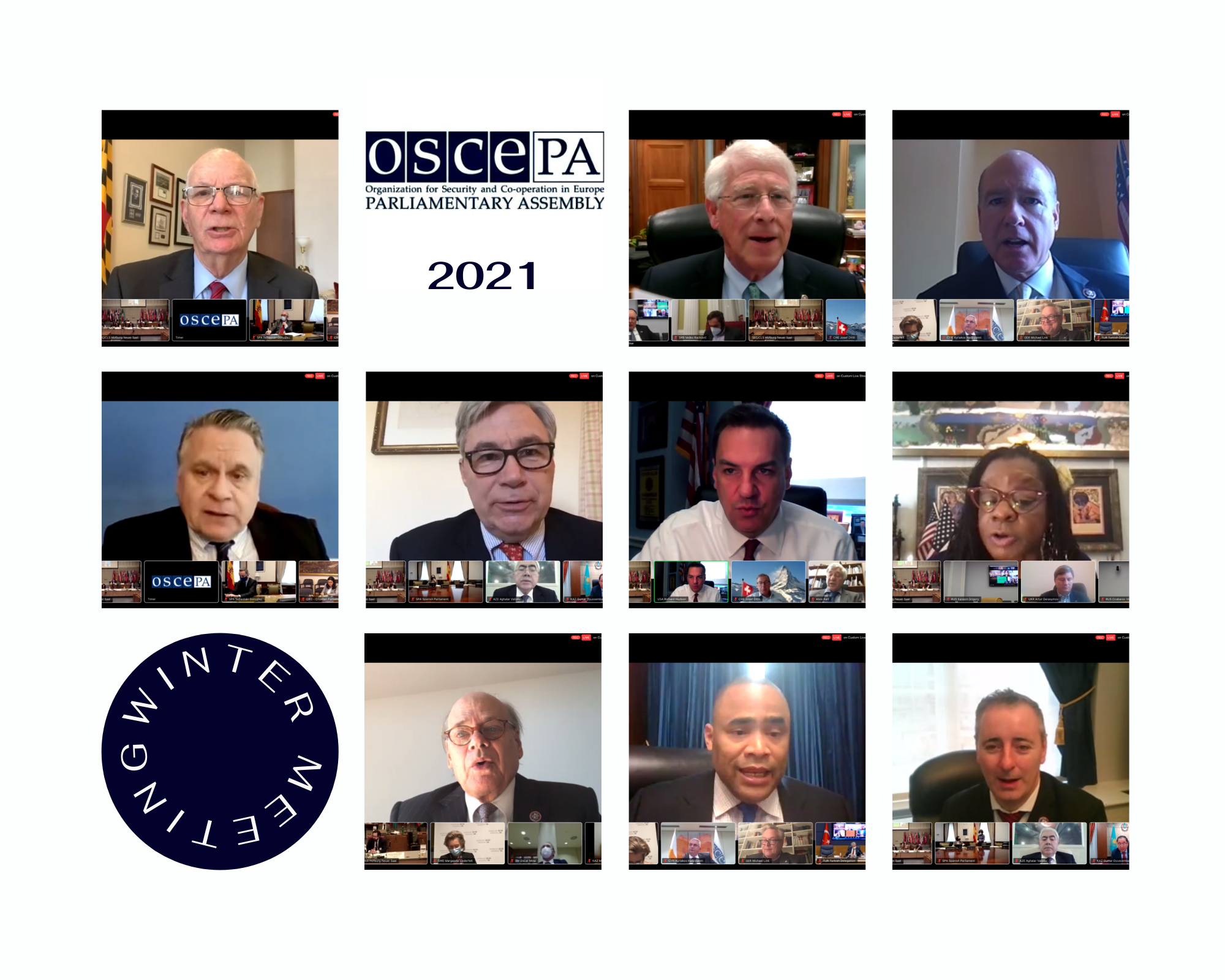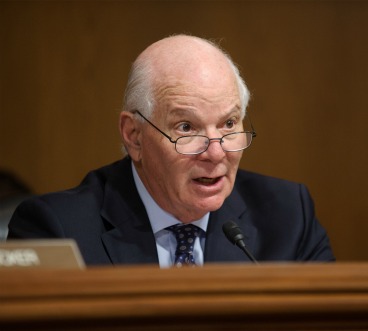Tolerance and Non-Discrimination
Fifteen Years of the Recommendations of Policing in ...
Nov 15, 2021By Nathaniel Haas, Max Kampelman Fellow On November 5, 2021, the OSCE High Commissioner on National Minorities convened a hybrid conference commemorating the 15th anniversary of “Recommendations on Policing in […]

HELSINKI COMMISSIONERS JOIN OSCE PA MEETING ON AFGHA...
Nov 09, 2021On November 4, 2021, more than 40 members of the OSCE Parliamentary Assembly (PA) met remotely to discuss the current security challenges posed by developments in Afghanistan and the future […]
Helsinki Commission Delegation Advances Priority Iss...
Jul 15, 2021WASHINGTON—Helsinki Commission Chairman Sen. Ben Cardin (MD) and Ranking Member Sen. Roger Wicker (MS) last week led a U.S. delegation to the 2021 OSCE Parliamentary Assembly (PA) Annual Session in […]

Helsinki Commission Commemorates 45 Years of Advanci...
Jun 03, 2021WASHINGTON—To commemorate the 45th anniversary of the Commission on Security and Cooperation in Europe, also known as the U.S. Helsinki Commission, on June 3, Chairman Sen. Ben Cardin (MD) and […]
Helsinki Commission Leaders Commemorate Internationa...
Apr 08, 2021WASHINGTON—Ahead of International Roma Day on April 8, Helsinki Commission Chairman Sen. Ben Cardin (MD), commission leaders the late Rep. Alcee L. Hastings (FL-20) and Sen. Roger Wicker (MS), and […]

Ten-Member Congressional Delegation Demonstrates Ong...
Mar 05, 2021By Bob Hand, Senior Policy Advisor Approximately 270 parliamentarians from across the OSCE region gathered virtually from February 24 – 26 for the OSCE Parliamentary Assembly’s Winter Meeting, the first […]
Chairman Hastings Introduces Federal Jobs Act to Inc...
Feb 19, 2021WASHINGTON—Helsinki Commission Chairman Rep. Alcee L. Hastings (FL-20) on Thursday reintroduced the Federal Jobs Act, a bill to establish a government-wide diversity and inclusion plan to ensure fair access and […]
Chairman Hastings Introduces LITE Act to Foster Shar...
Feb 18, 2021WASHINGTON—Helsinki Commission Chairman Rep. Alcee L. Hastings (FL-20) on Thursday reintroduced the Leadership Institute for Transatlantic Engagement (LITE) Act to strengthen ties with U.S. allies, protect democratic institutions, and support […]
Chairman Hastings Introduces Initiatives to Promote ...
Feb 18, 2021WASHINGTON—As the United States celebrates Black History Month and the world continues to highlight the International Decade for People of African Descent, Helsinki Commission Chairman Rep. Alcee L. Hastings (FL-20) […]
COVID-19 IMPACTS OSCE’S 2020 HUMAN DIMENSION WORK
Dec 07, 2020By Erika Schlager, Counsel for International Law; Janice Helwig, Senior Policy Advisor; and Shannon Simrell, Representative of the Helsinki Commission to the U.S. Mission to the OSCE The regular and […]

Remarks from Sen. Cardin Concerning Election Observa...
Nov 12, 2020Statement at the OSCE Parliamentary Assembly Meeting of the Standing Committee Mr. Secretary General on behalf of the U.S. Helsinki Commission, let me congratulate our president, our secretary general, and leadership […]
OSCE representatives, community leaders share urgent...
Oct 12, 2020On October 6, 2020, the OSCE Office of the High Commissioner on National Minorities, in cooperation with the Helsinki Commission, convened “Policing in Diverse Societies: Principles and Good Practices.” The webinar, which […]
